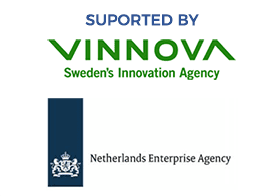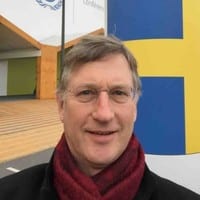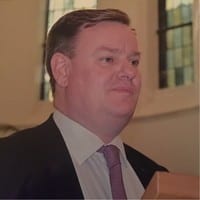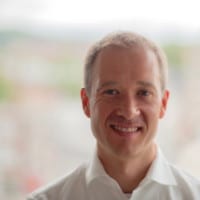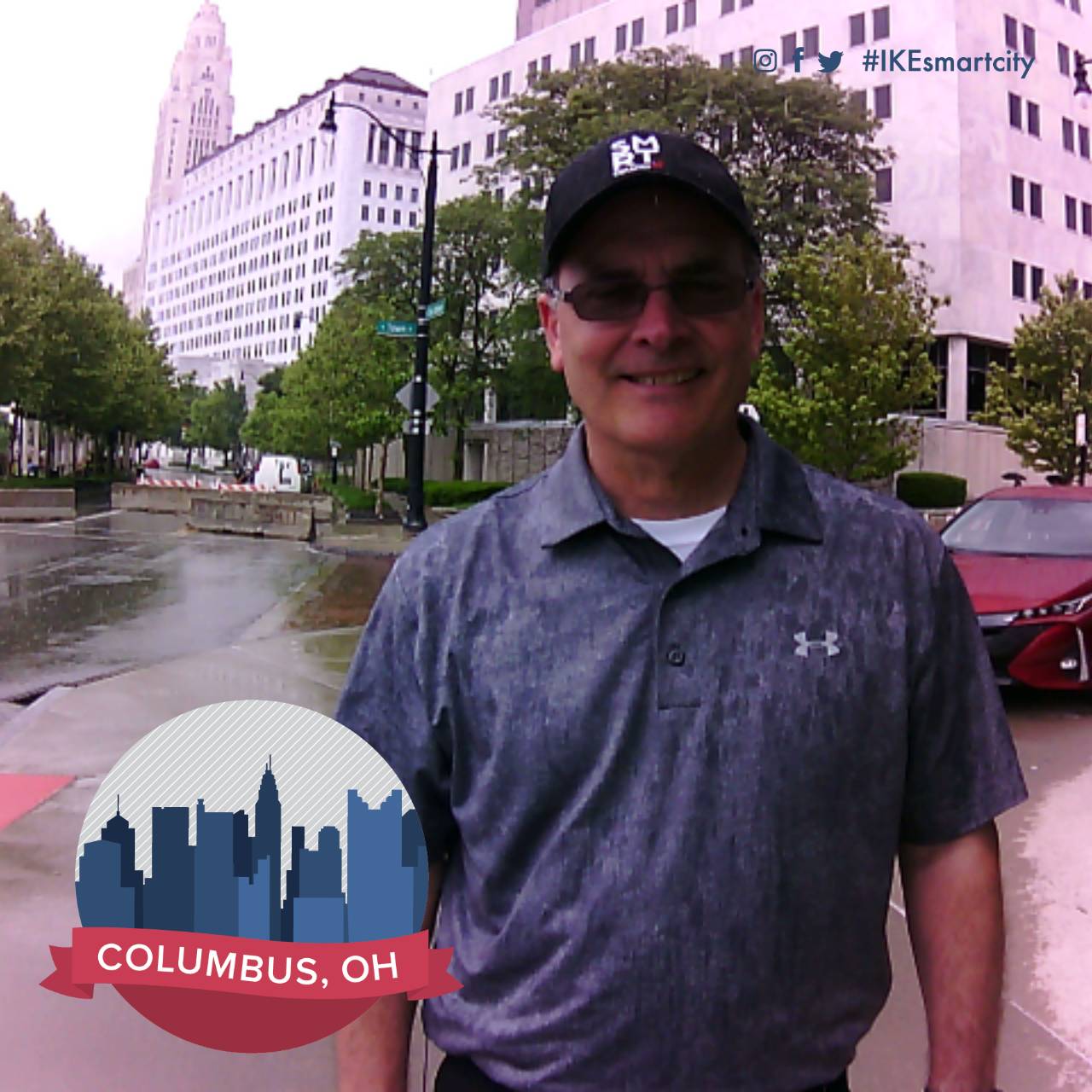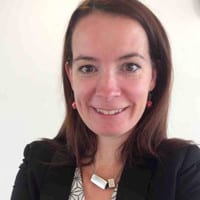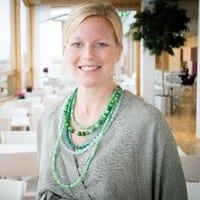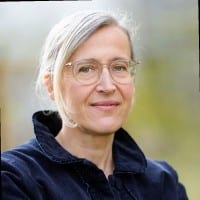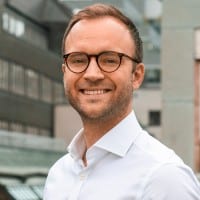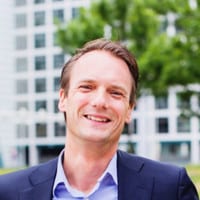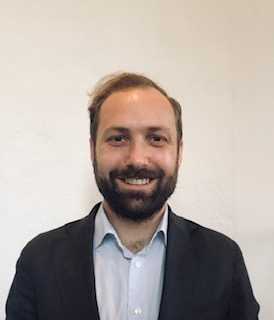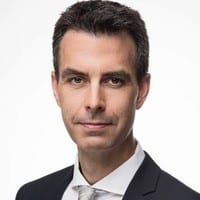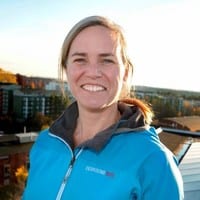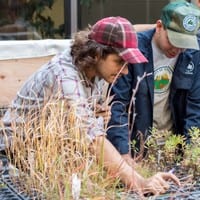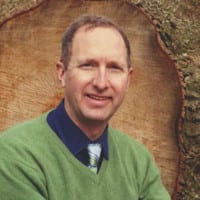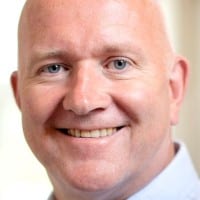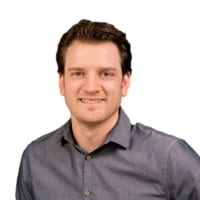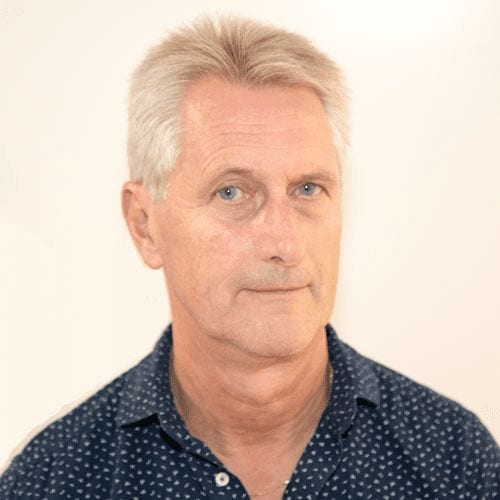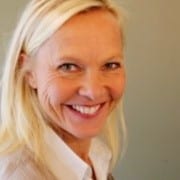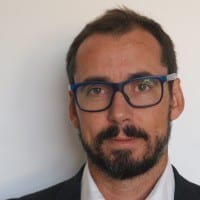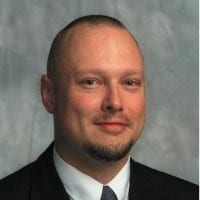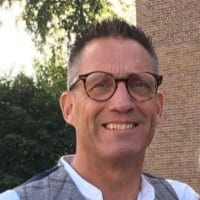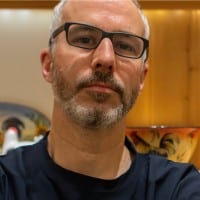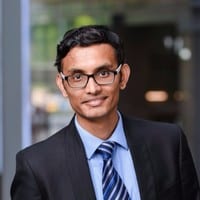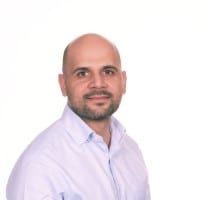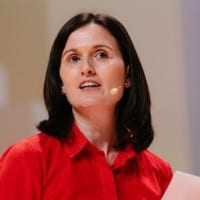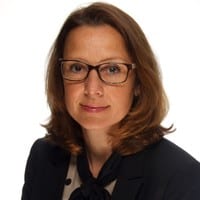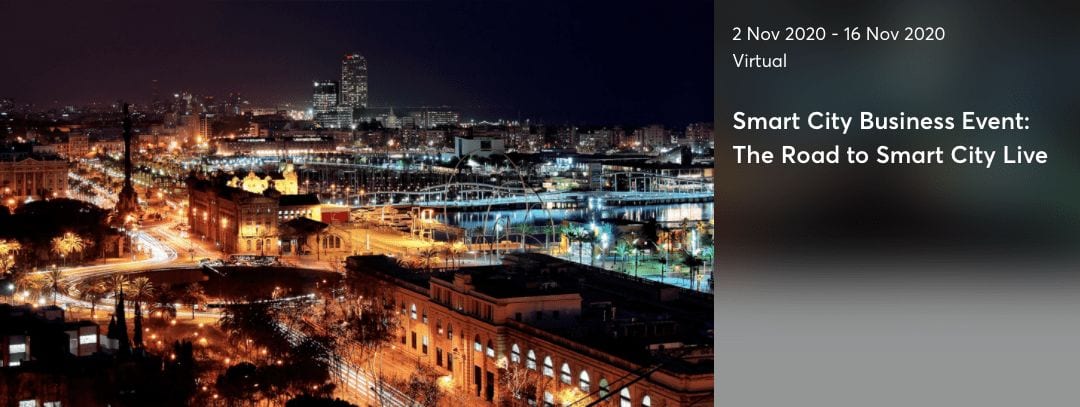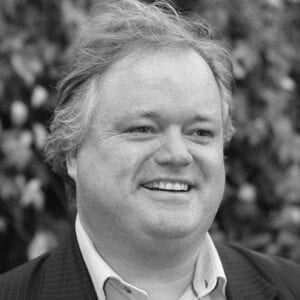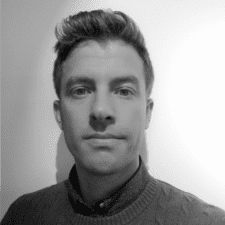ABOUT
We at Cleantech Scandinavia like to invite you to participate in one of this year’s most valuable and progress-focussed, international Smart City events – The Road to Smart City Live 2020.
From a great variety of smart city-themed workshops during this three-day event we will offer nine choice alternatives. These are not only close to our core competence but all touch on ever-more central issues at the heart of many initiatives – finance and business cases. Global experts and speakers are forming the backbone of our workshops and will present lively discussions, solutions, pathways, and pointers for improvement, all to strengthen cities and their efforts on their route to a sustainable future.
This event is a run-up to the Smart City Live, organised by FIRA as an online edition of the Smart City Expo World Congress in Barcelona. What sets this Smart City Business Event apart from the well-known tradeshow, are the focal points on innovation systems in Europe and, particularly, on finding cooperation for joint solutions to smart city challenges already at an early stage.
The purpose of this Digital Event is to provide governments, city representatives, start-ups, SME’s, corporates, experts, and investors with a platform to initiate long-term partnerships and projects. National organizations and cities from all over the world will be brought together to provide diverse viewpoints and share experiences, establish new alliances and build on existing ones. Innovators and experts will share their solutions and showcase outstanding venture opportunities for investors with a smart city focus.
Our efforts, however, do not stop with providing you with leading-edge workshops and matchmaking. The Smart City Live will feature Nordic events that take up some of the central themes in our workshops and continue to develop them under different perspectives.
Visit the registration website for additional information!
We are looking forward to meeting you all in November! Let´s shape the future together!
Your Cleantech Scandinavia & GreenTech Village Team
AGENDA
November 2nd
14.30 – 16.00
Financing Sustainable, Climate Neutral – The City Perspective
November 9th
9.30 – 11.00
How to harvest and manage real-time data – what are the organizational and a technical challenges?
11.00 – 12.30
Energy positive neighbourhoods – is it possible to reach?
12.30 – 13.00
Climate Smart City Challenge Kick-Off
13.00 – 14.30
Financing Sustainable, Climate Neutral – The role of private financial institutions
14.30 – 16.30
Scaling up internationally – how to use the city as an innovation arena for creating positive impact
November 16th
9.30 – 10.30
How Stockholm is realizing its smart city strategy
10.30 – 12.30
The City after Corona
13.00 – 14.30
Financing Sustainable, Climate Neutral – Funding Mechanisms
14.30 – 16.00
Financing Sustainable, Climate Neutral – The Business Case
WORKSHOPS
Financing Sustainable, Climate Neutral Cities – the City perspective
November 2nd 14.30 – 16.00

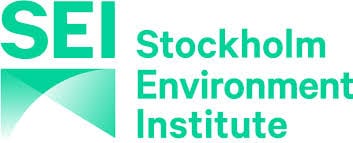
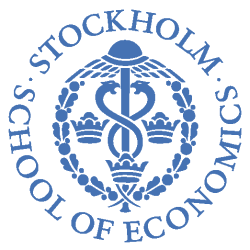
with the support from

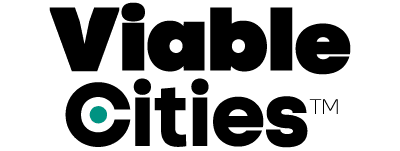
There is no lack of sustainable, climate friendly and smart technologies, but there seems to be challenges to implement and upscale in city structures. The reasons may be many from the silo-based nature of city governance to financing challenges. In this first workshop in the series we will hear from a selection of cities in regards to their experiences, progress and challenges in developing a sustainable, climate neutral city. Specific focus will be on the financing need and potential solutions for funding. The cities will be flanked by experts to comment, provide input and questions.
There is no lack of sustainable, climate friendly and smart technologies, but there seems to be challenges to implement and upscale in city structures. The reasons may be many from the silo-based nature of city governance to financing challenges. In this first workshop in the series we will hear from a selection of cities in regards to their experiences, progress and challenges in developing a sustainable, climate neutral city. Specific focus will be on the financing need and potential solutions for funding. The cities will be flanked by experts to comment, provide input and questions.
Workshop Highlights
Speakers
Moderator
The challenge of sharing data within smart cities
November 9th 09.30 – 11.00


Stockholm Royal Seaport is one of Europe’s largest urban development areas with high ambitions to lead the way and show example of a more sustainable urban development. To follow up on the city districts ambitious sustainability targets there is a need for developed data collection – existing data within the city needs to be located and “extracted” and new IoT-data needs to be applied to increase the understanding of how the city district performs. How did planned solutions turn out and what effects can we see from them?
When starting to share data between different actors in the city we are faced with different challenges – both from an organizational and an technical perspective. It is a learning process, and we have learned! Some key questions that must be answered include: Who is the information owner? How do we classify data and know if we can provide it as shared data or open data? How do we work with value creation and business models for the internally shared data?
The challenge we want to bring to the table:
How to reach the state where we can easily share data within the smart city?
Where are you on your learning journey – what are your major challenges and questions? Have we started with and found solutions to the same or different questions?
Stockholm Royal Seaport is one of Europe’s largest urban development areas with high ambitions to lead the way and show example of a more sustainable urban development. To follow up on the city districts ambitious sustainability targets there is a need for developed data collection – existing data within the city needs to be located and “extracted” and new IoT-data needs to be applied to increase the understanding of how the city district performs. How did planned solutions turn out and what effects can we see from them?
When starting to share data between different actors in the city we are faced with different challenges – both from an organizational and an technical perspective. It is a learning process, and we have learned! Some key questions that must be answered include: Who is the information owner? How do we classify data and know if we can provide it as shared data or open data? How do we work with value creation and business models for the internally shared data?
The challenge we want to bring to the table:
How to reach the state where we can easily share data within the smart city?
Where are you on your learning journey – what are your major challenges and questions? Have we started with and found solutions to the same or different questions?
Speakers
Energy positive neighborhoods – is it possible to reach?
November 9th 11.00 – 12.30


In 2009, Stockholm Royal Seaport (SRS) was appointed by Stockholm City Council to be a forerunner and fossil fuel-free city district in 2030. A Road-map describing SRS’s ambitions and plans on how to develop a climate positive city district was developed. The most important aspects identified were to reduce energy use in general, and reduce the use of fossil energy.
Despite phasing out fossil fuels in district heating, reducing energy use in buildings (all new developments in the area are built to zero-energy-house standards) and increasing local production of renewable energy, thus minimising climate emissions with some 60 %, there is still a long way to go., yet the challenge lies in generating more renewable energy, increase recovery of waste heat and seasonally store energy.
Experiences from the development project Hammarby Sjöstad (HS) and the early phases of SRS show that having a building level focus is not enough to reach a PED, and a more holistic and integrated approach has to be applied. For example, in HS the first steps of integrating energy with waste and wastewater management was initiated. Through a R&D project on source separated wastewater systems in SRS, MACRO financed by Vinnova, the potential to further optimise these resources if this is done on a neighbourhood or property level.
The ambition in Stockholm is to investigate how to minimize the supply of energy through maximizing local energy generation, utilize and store energy throughout the year. The project goal is to develop a fossil fuel-free energy system for approximately 4,000 apartments and 125,000 m2 of commercial space in buildings with passive-house standard, that will be constructed from 2025 onwards in the last phase in SRS, in Loudden. In addition to energy efficient buildings and locally produced energy, the development of the fossil-free and energy positive system will integrate infrastructure and supply systems for energy waste and water, as well as optimises the storage of energy for seasonal use and peak-shaving.
Discussion:
- How do we define a plus-energy district? (what is included and what is not?, what are the systems boundaries?)
- Is it possible to reach plus-energy districts?
- What are the most interesting and promising technologies for energy storage and peak-shaving?
In 2009, Stockholm Royal Seaport (SRS) was appointed by Stockholm City Council to be a forerunner and fossil fuel-free city district in 2030. A Road-map describing SRS’s ambitions and plans on how to develop a climate positive city district was developed. The most important aspects identified were to reduce energy use in general, and reduce the use of fossil energy.
Despite phasing out fossil fuels in district heating, reducing energy use in buildings (all new developments in the area are built to zero-energy-house standards) and increasing local production of renewable energy, thus minimising climate emissions with some 60 %, there is still a long way to go., yet the challenge lies in generating more renewable energy, increase recovery of waste heat and seasonally store energy.
Experiences from the development project Hammarby Sjöstad (HS) and the early phases of SRS show that having a building level focus is not enough to reach a PED, and a more holistic and integrated approach has to be applied. For example, in HS the first steps of integrating energy with waste and wastewater management was initiated. Through a R&D project on source separated wastewater systems in SRS, MACRO financed by Vinnova, the potential to further optimise these resources if this is done on a neighbourhood or property level.
The ambition in Stockholm is to investigate how to minimize the supply of energy through maximizing local energy generation, utilize and store energy throughout the year. The project goal is to develop a fossil fuel-free energy system for approximately 4,000 apartments and 125,000 m2 of commercial space in buildings with passive-house standard, that will be constructed from 2025 onwards in the last phase in SRS, in Loudden. In addition to energy efficient buildings and locally produced energy, the development of the fossil-free and energy positive system will integrate infrastructure and supply systems for energy waste and water, as well as optimises the storage of energy for seasonal use and peak-shaving.
Discussion:
- How do we define a plus-energy district? (what is included and what is not?, what are the systems boundaries?)
- Is it possible to reach plus-energy districts?
- What are the most interesting and promising technologies for energy storage and peak-shaving?
Speakers
Climate Smart City Challenge Kick-Off
Presentation is held jointly by UN-Habitat, Teknikföretagen
and Viable Cities, supported by Vinnova
November 9th 12.30 – 13.00
The Climate Smart Cities Challenge is making an open call to city governments and agencies around the world to join an open competition that aims to stimulate and scale innovative ways to reduce greenhouse gas emissions in cities while creating other social benefits.
The initiative – spearheaded by Teknikföretagen, Viable Cities, UN-Habitat, Smart City Sweden, and Vinnova, and delivered by Nesta Challenges- is an opportunity for cities to work with a global pool of experts to develop and scale innovative solutions to urgent problems.
City governments and authorities recognise the essential role they have to play in tackling climate change. They now have the opportunity to collaborate with a global pool of technologists, businesses and investors to reduce greenhouse gas emissions and create a better world for future generations.
The Climate Smart Cities Challenge seeks to help cities address emissions as a strategy to overcome interconnected sustainability challenges stemming from rising inequalities including a lack of affordable housing and transport options, food and energy insecurity and other problems exacerbated by the climate crisis. Potential solutions will reach across sectors and could address everything from how neighbourhoods, schools and offices are designed in a post-Covid world to how people travel, what their green spaces look like and how their buildings are heated and cooled.
The open call invites city governments and agencies to identify shared issues experienced by cities around the world. It asks cities and key stakeholders to highlight the significant problems they face and are struggling to overcome, to develop solutions that transform the way cities grow, develop, change and respond to human and environmental needs in the coming decades.
The Climate Smart Cities Challenge is making an open call to city governments and agencies around the world to join an open competition that aims to stimulate and scale innovative ways to reduce greenhouse gas emissions in cities while creating other social benefits.
The initiative – spearheaded by Teknikföretagen, Viable Cities, UN-Habitat, Smart City Sweden, and Vinnova, and delivered by Nesta Challenges – is an opportunity for cities to work with a global pool of experts to develop and scale innovative solutions to urgent problems.
City governments and authorities recognise the essential role they have to play in tackling climate change. They now have the opportunity to collaborate with a global pool of technologists, businesses and investors to reduce greenhouse gas emissions and create a better world for future generations.
The Climate Smart Cities Challenge seeks to help cities address emissions as a strategy to overcome interconnected sustainability challenges stemming from rising inequalities including a lack of affordable housing and transport options, food and energy insecurity and other problems exacerbated by the climate crisis. Potential solutions will reach across sectors and could address everything from how neighbourhoods, schools and offices are designed in a post-Covid world to how people travel, what their green spaces look like and how their buildings are heated and cooled.
The open call invites city governments and agencies to identify shared issues experienced by cities around the world. It asks cities and key stakeholders to highlight the significant problems they face and are struggling to overcome, to develop solutions that transform the way cities grow, develop, change and respond to human and environmental needs in the coming decades.
Financing Sustainable, Climate Neutral Cities – the role of private financial institutions
November 9th 13.00 – 14.30



with the support from


The investments needed for a transition to a sustainable, climate neutral society are huge and even if government is ready to invest, the overwhelming part of the funding and investment will have to come from private asset holders, investors (from commercial banks to private equity funds and institutional investors).
How do these financial actors really view the city as an investment and funding arena? Have they developed specific strategies towards the sustainable, climate neutral and smart city and consequently in the process of developing tailored funding solutions? What are the criteria that they use to decide on whether to fund an initiative? What business models would be accepted for funding and collaboration? What conditions are required to increase the level of approved investments in smart cities? In this workshop we will hear from different private financial institutions providing their perspectives picking up from the needs expressed in the previous workshop on Financing Sustainable, Climate Neutral Cities. The workshop is hosted by Cleantech Scandinavia, Stockholm Environment Institute and Stockholm School of Economics with the support from Vinnova and Viable Cities.
The investments needed for a transition to a sustainable, climate neutral society are huge and even if government is ready to invest, the overwhelming part of the funding and investment will have to come from private asset holders, investors (from commercial banks to private equity funds and institutional investors).
How do these financial actors really view the city as an investment and funding arena? Have they developed specific strategies towards the sustainable, climate neutral and smart city and consequently in the process of developing tailored funding solutions? What are the criteria that they use to decide on whether to fund an initiative? What business models would be accepted for funding and collaboration? What conditions are required to increase the level of approved investments in smart cities? In this workshop we will hear from different private financial institutions providing their perspectives picking up from the needs expressed in the previous workshop on Financing Sustainable, Climate Neutral Cities. The workshop is hosted by Cleantech Scandinavia, Stockholm Environment Institute and Stockholm School of Economics with the support from Vinnova and Viable Cities.
Workshop Highlights
Speakers
Panellists
Moderator
Scaling up internationally – how to use the city as an innovation arena for creating positive impact
November 9th 14.30 – 16.30



with the support from

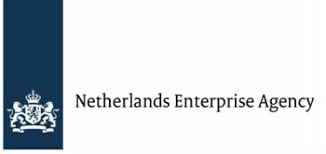
International experts in the field of (smart city) innovation management will discuss the processes and importance of scaling up & marketisation on the road to building capacity in cities. At the practical core lie system demonstrators enabling innovation to be put into practice, interacting with societal challenges, and contributing to the competitiveness of businesses. The EU Green Deal and the Mission 100 for climate neutrality are being launched and the funding is now in need of intelligent application of new governance approaches and processes for reaching the targets. Based around projects such as Stockholm´s “Grow Smarter”, cities will discuss how to better implement innovation from “rescued” pilot projects.
Moreover, two cutting-edge start-up cases in need of post-pilot growth will present their specific “pains” and hopes to the audience and the city representatives. What follows is a moderated dialogue between cities and the startups on how to tackle their problems. The capacity these cities have (or lack) is set vis-à-vis the real-life situations of these cutting-edge innovations, startups in need of vertically aligned stakeholders. Open-silo innovation processes, international collaboration, and overcoming scale-up dead-ends are the guiding principles. Vertical alignment of actors within the city´s innovation arena, the creation of new alliances, strategies, and methods will be essential outcomes of this workshop.
Discussion:
- How to approach the problem of the “pilot desert land” – i.e. stranded pilot projects outside of markets and diffusion – after the government´s grant money has run out?
- How to vertically support effective and speedy processes enabling start-ups to grow and reach the markets?
- How can the various actors involved in this chain create processes, leading from R&D to testing/prototyping to scaling up/creating impact?
- What will collaboration yield – shared learning & tools, projects; can we identify what is missing today and most importantly, what are the positive lessons that are widely adoptable?
International experts in the field of (smart city) innovation management will discuss the processes and importance of scaling up & marketisation on the road to building capacity in cities. At the practical core lie system demonstrators enabling innovation to be put into practice, interacting with societal challenges, and contributing to the competitiveness of businesses. The EU Green Deal and the Mission 100 for climate neutrality are being launched and the funding is now in need of intelligent application of new governance approaches and processes for reaching the targets. Based around projects such as Stockholm´s “Grow Smarter”, cities will discuss how to better implement innovation from “rescued” pilot projects.
Moreover, two cutting-edge start-up cases in need of post-pilot growth will present their specific “pains” and hopes to the audience and the city representatives. What follows is a moderated dialogue between cities and the startups on how to tackle their problems. The capacity these cities have (or lack) is set vis-à-vis the real-life situations of these cutting-edge innovations, startups in need of vertically aligned stakeholders. Open-silo innovation processes, international collaboration, and overcoming scale-up dead-ends are the guiding principles. Vertical alignment of actors within the city´s innovation arena, the creation of new alliances, strategies, and methods will be essential outcomes of this workshop.
<strong>Discussion</strong>:
<ul>
<li>How to approach the problem of the “pilot desert land” – i.e. stranded pilot projects outside of markets and diffusion – after the government´s grant money has run out?</li>
<li>How to vertically support effective and speedy processes enabling start-ups to grow and reach the markets?</li>
<li>How can the various actors involved in this chain create processes, leading from R&D to testing/prototyping to scaling up/creating impact?</li>
<li>What will collaboration yield – shared learning & tools, projects; can we identify what is missing today and most importantly, what are the positive lessons that are widely adoptable?</li>
</ul>
Speakers
Panellists
Contributors
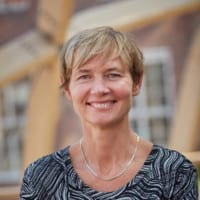
Moderators
How Stockholm is realizing its smart city strategy
November 16th 09.30 - 10.30


Worldwide, we see challenges that face all large cities, and of course, Stockholm has its challenges too. The climate change, an aging population in need of care from fewer that can support and a growing population leading to housing shortage are some examples of challenges that Stockholm is facing today.
Innovation, connectivity and open data have been identified among others as means of solving some of the city's challenges. Based on these findings, a strategy - Stockholm as a smart and connected city - was developed. The strategy has defined a smart city as a city that make use of digitalization and new technology to improve and make life easier for its citizens, visitors and businesses.
Development and innovation will move Stockholm towards its vision. It will take into account the goals of a sustainable city economically, ecologically and socially and put its citizens at the forefront. A smart city is for the people living, working and visiting Stockholm.
In order to achieve a Smart and Connected city the council approved the strategy and a budget and, gave the executive office the assignment to established five innovative projects joint in a program. The five projects were identified for its ability to take on the challenges to explore the areas of connectivity, data, industry standards, tender processes, legal and ethical issues. The projects are - Technical Prerequisites, Open Data, Smart and Connected lighting, Smart Traffic Management and Smart Locks.
Stockholm has now begun to install an end-to-end solution of Smart and connected lights in one area in Stockholm. New improved lampposts with LED-fixtures and sensors for presence detection that will save energy, as the light is dynamic and only in use when needed. A new operating system has been installed that is connected with the smart fixtures for individual contact to create a data flow about status and energy consumption. Maria Holm, project leader will present this work.
The project Smart Traffic Management has tested a variety of new technologies in order to improve the traffic flow in Stockholm. Traffic data from Google has been used to change traffic lights based on the actual traffic, cameras has been tested to gather data about the traffic situation, heat cameras has been tested to register the traffic in order to get a better flow for public transportation. Petra Robin, project leader will present this work.
The path to a Smart city is a long and winding road. In a conversation, we will share what experiences we´ve been taken and how we´ve started the process to become a smart and innovative city.
Worldwide, we see challenges that face all large cities, and of course, Stockholm has its challenges too. The climate change, an aging population in need of care from fewer that can support and a growing population leading to housing shortage are some examples of challenges that Stockholm is facing today.
Innovation, connectivity and open data have been identified among others as means of solving some of the city's challenges. Based on these findings, a strategy - Stockholm as a smart and connected city - was developed. The strategy has defined a smart city as a city that make use of digitalization and new technology to improve and make life easier for its citizens, visitors and businesses.
Development and innovation will move Stockholm towards its vision. It will take into account the goals of a sustainable city economically, ecologically and socially and put its citizens at the forefront. A smart city is for the people living, working and visiting Stockholm.
In order to achieve a Smart and Connected city the council approved the strategy and a budget and, gave the executive office the assignment to established five innovative projects joint in a program. The five projects were identified for its ability to take on the challenges to explore the areas of connectivity, data, industry standards, tender processes, legal and ethical issues. The projects are - Technical Prerequisites, Open Data, Smart and Connected lighting, Smart Traffic Management and Smart Locks.
Stockholm has now begun to install an end-to-end solution of Smart and connected lights in one area in Stockholm. New improved lampposts with LED-fixtures and sensors for presence detection that will save energy, as the light is dynamic and only in use when needed. A new operating system has been installed that is connected with the smart fixtures for individual contact to create a data flow about status and energy consumption. Maria Holm, project leader will present this work.
The project Smart Traffic Management has tested a variety of new technologies in order to improve the traffic flow in Stockholm. Traffic data from Google has been used to change traffic lights based on the actual traffic, cameras has been tested to gather data about the traffic situation, heat cameras has been tested to register the traffic in order to get a better flow for public transportation. Petra Robin, project leader will present this work.
The path to a Smart city is a long and winding road. In a conversation, we will share what experiences we've been taken and how we've started the process to become a smart and innovative city.
Speakers
Panellists
The City after Corona
November 16th 10.30 - 12.30


with the support from


This workshop will focus on the pressing issues understanding how the Corona virus affects the way we design cities now and in the future. The discussion will span from what we learn from the Corona crisis to strategies for the future and what type of technology that will be in demand in these changing times. We will listen to the experiences from implementing the so called Doughnut and the 15-minute city models as well as insights into living streets concepts. Participants will be city representatives, government agencies and companies.
This workshop will focus on the pressing issues understanding how the Corona virus affects the way we design cities now and in the future. The discussion will span from what we learn from the Corona crisis to strategies for the future and what type of technology that will be in demand in these changing times. We will listen to the experiences from implementing the so called Doughnut and the 15-minute city models as well as insights into living streets concepts. Participants will be city representatives, government agencies and companies.
Speakers
Panellists
Moderator
Financing Sustainable, Climate Neutral Cities - Funding Mechanisms
November 16th 13.00 - 14.30



with the support from


This workshop will focus on different types of funding mechanisms from citizen crowdfunding to green and sustainable bonds to public private partnerships initiatives to government funding mechanisms and everything in between. The workshop will draw on experiences to provide a view of strengths and weaknesses with different mechanisms. The workshop is hosted by Cleantech Scandinavia, Stockholm Environment Institute and Stockholm School of Economics with the support from Vinnova and Viable Cities.
This workshop will focus on different types of funding mechanisms from citizen crowdfunding to green and sustainable bonds to public private partnerships initiatives to government funding mechanisms and everything in between. The workshop will draw on experiences to provide a view of strengths and weaknesses with different mechanisms. The workshop is hosted by Cleantech Scandinavia, Stockholm Environment Institute and Stockholm School of Economics with the support from Vinnova and Viable Cities.
Speakers
Panellists
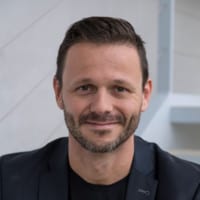

Liza Rose Cirolia
Senior researcher, the African Centre for Cities
Moderator
Financing Sustainable, Climate Neutral Cities - The Business Case
November 16th 14.30 - 16.00



in collaboration with the Mission Board for Climate Neutral Cities and with the support from


By taking the lead in the urban transition to climate neutrality, Europe will strengthen its role as a global driver of sustainable growth, creating new investment opportunities and new and better jobs. This workshop will draw from the three previous ones and spark a constructive conversation between industry, the cities, civic organisations, government and financial institutions on the potential and the barriers to overcome to achieve this great potential.
The workshop is hosted by Cleantech Scandinavia, Stockholm Environment Institute and Stockholm School of Economics in collaboration with the Mission Board for Climate Neutral Cities and with the support from Vinnova and Viable Cities.
By taking the lead in the urban transition to climate neutrality, Europe will strengthen its role as a global driver of sustainable growth, creating new investment opportunities and new and better jobs. This workshop will draw from the three previous ones and spark a constructive conversation between industry, the cities, civic organisations, government and financial institutions on the potential and the barriers to overcome to achieve this great potential.
The workshop is hosted by Cleantech Scandinavia, Stockholm Environment Institute and Stockholm School of Economics in collaboration with the Mission Board for Climate Neutral Cities and with the support from Vinnova and Viable Cities.
Panellists

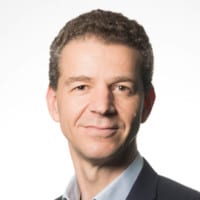
For more information
If you have any question or anything went wrong while registering, contact us.


